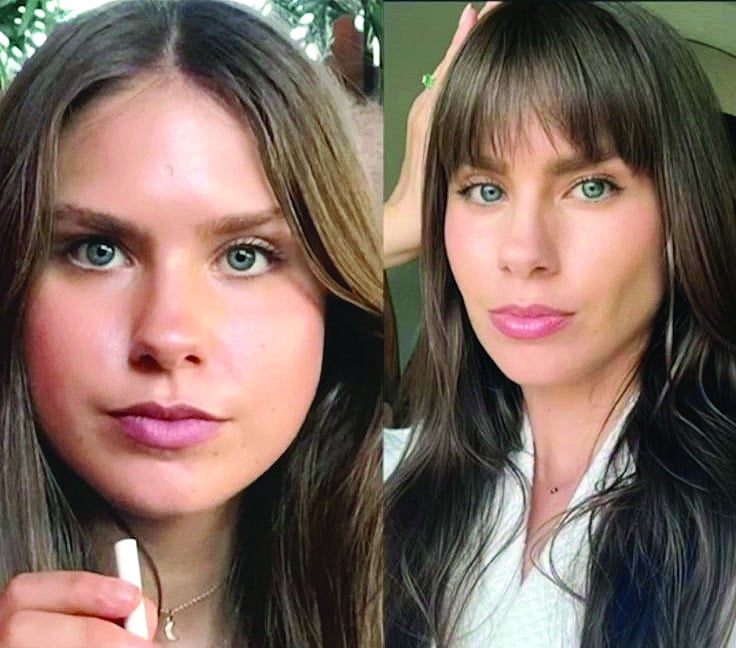TikTok trends often make you wonder if you’ve been living under a rock, and the latest craze, “cortisol face,” is no different. According to social media influencers, stress isn’t just wreaking havoc on your mental well-beingit’s also giving you puffy cheeks, sagging eyelids, and even a double chin.
The claim? It’s all because of high cortisol levels, the body’s primary stress hormone. The solution? Balance your cortisol, and voilayou’ll go from looking bloated to sporting a sharp jawline worthy of a superhero. It’s compelling enough to make anyone pause while scrolling, but is it true?
In dozens of viral videos, TikTokers share before-and-after selfies, attributing their seemingly miraculous facial transformations to lowering cortisol levels. Phrases like, “You’re not ugly, you just have cortisol face,” flood captions, and viewers are left wondering if their stress levels are sabotaging their appearance. The logic seems simple: excess stress produces excess cortisol, which then bloats your face and packs on the pounds in all the wrong places. But like many things on TikTok, it’s not quite as it seems.
So, what exactly is cortisol? Dr Adam Friedman, professor of dermatology at George Washington University, explains it to The Guardian: “Cortisol is a steroid hormone produced by the adrenal glands, and it plays a crucial role in regulating metabolism, blood pressure, immune response, and stress management.” It’s one of those “Goldilocks” hormonesyou need the right amount to keep your body functioning, but too much can lead to problems. However, even Friedman acknowledges that the kind of physical changes influencers claim are linked to cortisol aren’t that simple.
What TikTokers are calling “cortisol face” is more likely linked to everyday factors like diet, sleep deprivation, or simply genetics. “Stress can contribute to weight gain,” says Dr. Friedman, “but not to the extent seen in medical conditions like Cushing’s.” Translation? Your stressful workday isn’t turning you into a puffball overnight.
Speaking with USA Today, gynecologist Dr Karen Tang says significant issues with cortisol imbalance are rare. “It only affects 10 to 15 people per million every year, mostly cisgender women between the ages of 20 and 50, according to the Endocrine Society.” She cautions against listening to medical advice on social media, which can make health issues seem more common than they actually are.
“It can make you feel as if basically everyone has a hormone imbalance,” Tang says of the cortisol discourse online. “It’s very effective marketing, because who hasn’t had problems with fatigue or difficulty with weight loss or their mood? It feels like it’s applicable to almost everyone. Obviously, almost everyone does not have a true hormone imbalance or endocrine condition that needs treatment.”
But that’s not stopping the “cortisol face” narrative from spreading like wildfire. The platform has always thrived on quick fixes, and this trend taps into two things people care about deeply: their appearance and their health. TikTok creators are quick to promote everything from supplements to stress-reduction techniques like meditation and breathing exercises, claiming these will help “cure” cortisol face. However, if you really want to know whether cortisol is impacting your appearance, you’ll need more than TikTok advice. According to experts, doctors can check your cortisol levels through blood, urine, or saliva testsnot by scrolling through your TikTok feed.
Of course, influencers aren’t medical professionals, and their approach to wellness is often simplified, if not downright misleading. Not only does the “cortisol face” trend perpetuate unrealistic beauty standards, but it also taps into the broader, problematic culture of body negativity.
So, is “cortisol face” real? In a word no, at least not in the way TikTok portrays it. While cortisol can affect your body, and prolonged elevated levels can lead to serious conditions like Cushing’s syndrome, it’s rare and far more complicated than a few viral clips make it seem. If your face looks a little fuller after a particularly tough week, the likely culprits are poor sleep or salty snacks, not cortisol.







